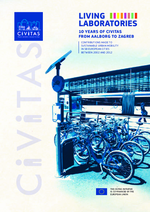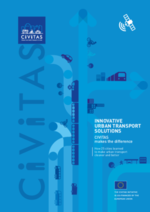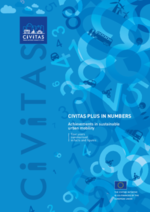
Image by Unsplash, Uriel Soberanes
Coimbra (Portugal)
Coimbra, former capital of Portugal in the 12th century, can look back at a history of a thousand years during which the city has accumulated countless artistic treasures. The wealth of the city mostly stems from one of the world’s oldest universities, the University of Coimbra that has about 23,000 students. Together with other institutions for higher education, the city is home to 35,000 students. The city of Coimbra always played an important role in the national context that is currently emphasised by the development of communications and transport infrastructure. Coimbra’s education and health sectors, as well as regional public administration offices attract many people from different areas of the country to the city and contribute to the city’s steady growth. Its accessibility is therefore crucial.
One of our main goals is to improve the efficiency, effectiveness, and equity of the cost of transporting people and goods, taking into account external costs. We are focused on the promotion of a balanced shift towards cleaner and more efficient modes of transport, maintaining the guarantee of accessibility offered by the transport system for everyone. In the ongoing transformation process, based on the need to adapt the mobility paradigm, one of the objectives is to reduce the negative impact of the transport system on the health and safety of citizens, particularly the most vulnerable. The aim is to reduce air pollution, noise, greenhouse gas emissions, and energy consumption. Based on these outlined objectives, we have a clear municipal health strategy where mobility is one of the main lines of action.
The promotion of sustainable mobility, not only through public transport but also through soft mobility, and the offer of proximity public space, which are for us central to the design of the city of the future. Therefore, we emphasize active or soft mobility: pedestrian and cycling, as an essential component for the improvement of urban health. Not only because it promotes healthy lifestyles, through the integration of physical activity in commuting and daily activities, but also because it contributes to the decarbonization of urban mobility (potential reduction in the number of cars in circulation) and improvement of environmental quality (reduction of air pollution).
Website Facebook Facebook Coimbra Tourism Twitter Youtube Flickr
Fast Facts
143,396
Population
320 km²
City area
2007
Membership start

















